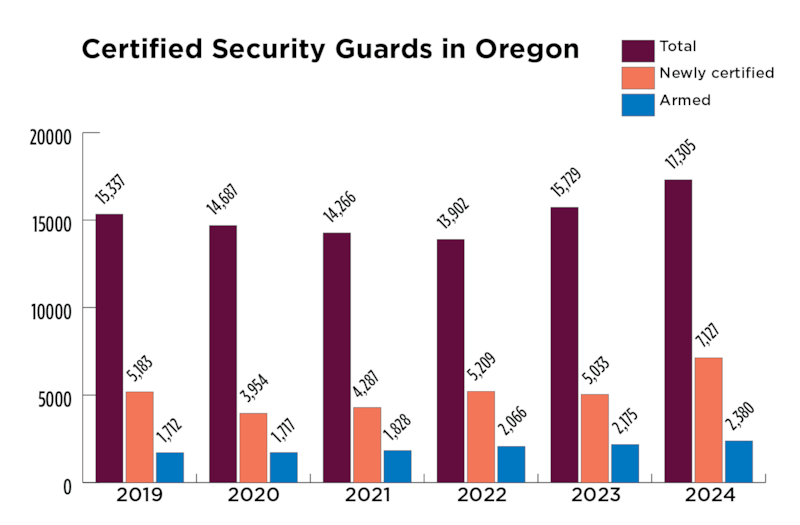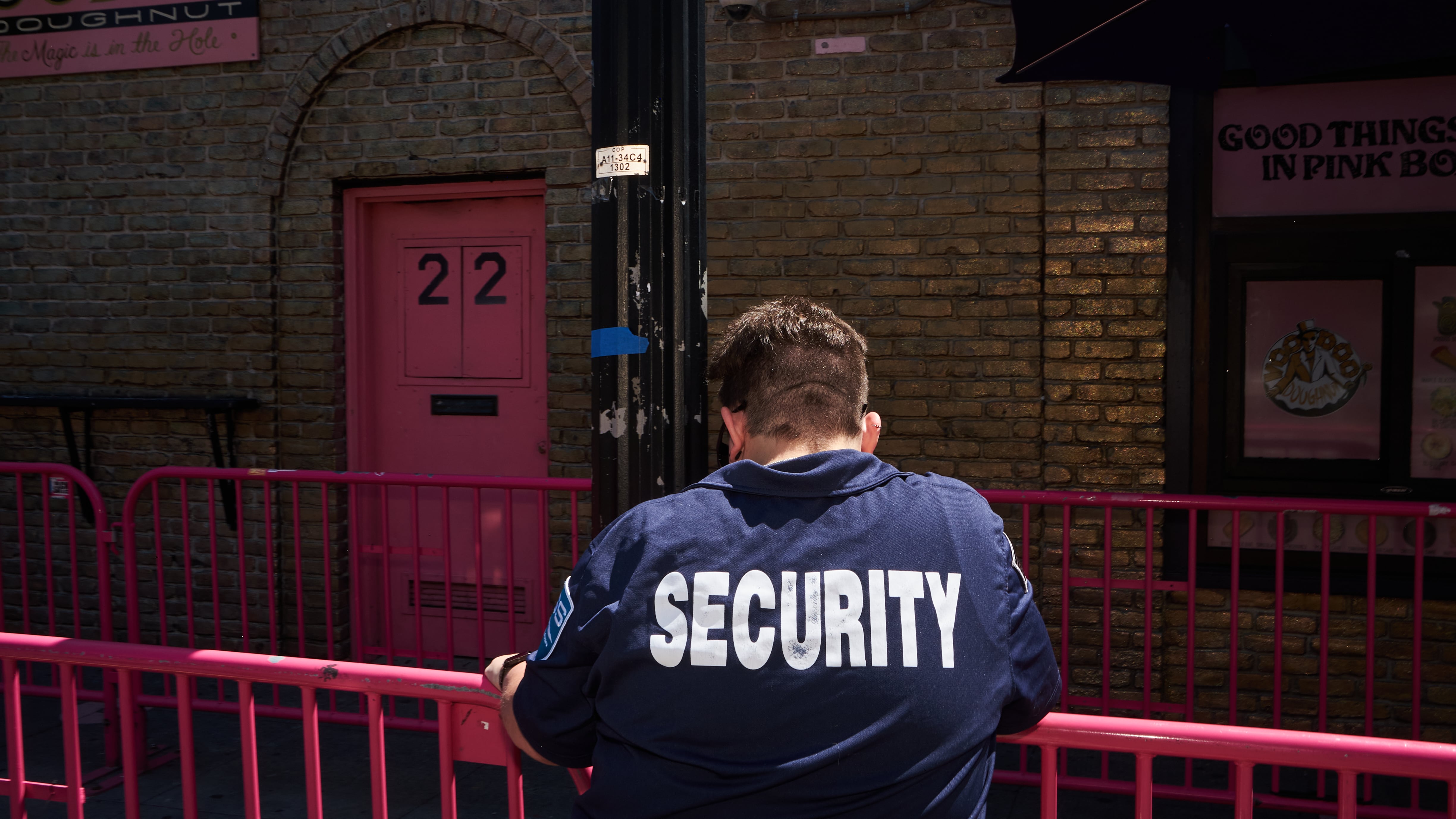Even though federal and local statistics show crime is declining from pandemic-era highs, it feels rare to walk more than a couple of blocks in Portland’s urban core without encountering a private security guard. And many of them are armed.
Since 2020, new statistics show, the number of certified private security guards in Oregon allowed to carry a weapon has increased 39%.
“The private security industry is surging nationwide as police departments experience staffing shortages and have less capacity to address low-level crimes like shoplifting, trespassing, etc.,” says Sam Tenney, a spokesman for the Oregon Department of Public Safety Standards and Training, the state police academy that certifies police, private investigators and security guards. “Property owners, businesses, municipalities and public entities are increasingly turning to private security to fill that gap by patrolling their properties and serving as a visible deterrent to crime.”
Figures WW obtained from DPSST under a public records request show growth (see chart). Some of it is steady—the total number of certified security guards is up 13% from 2019, the last pre-pandemic year—and some of it is eye-poppingly large.
The number of security guards licensed to carry a firearm, for instance, is up 39% over the same period. And the number of newly trained security guards is up 38% from before the pandemic, with all the growth coming in the past year.
Tenney says factors other than routine concerns about crime may have boosted the numbers.
“Large events like the recent U.S. Olympic track trials in Eugene require a significant number of certified private security providers, all of whom must be certified,” Tenney says. “In many cases, people working temporary security jobs for such events will need to gain certification for a job that may only last a few weeks.”
One other change: Tenney notes that a law passed in 2021 made it easier for some people with criminal convictions to work in security. “New moral fitness standards for private security providers were put in place that removed blanket disqualifiers,” Tenney says. But the new law didn’t only lower some barriers to entry, he says. “The change allowed for a more mindful review of specific behaviors and lengthened the time of ineligibility for holding certification/licensure for more serious crimes or egregious acts.”


